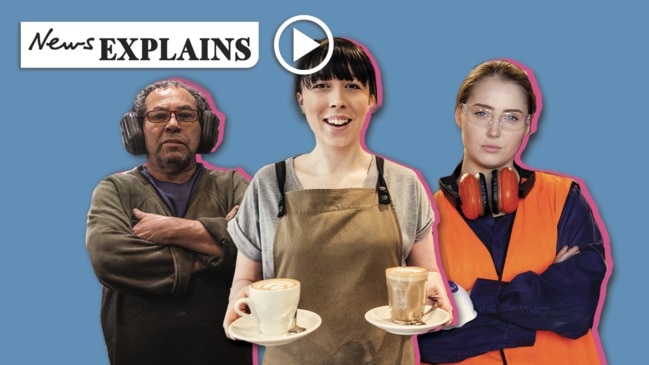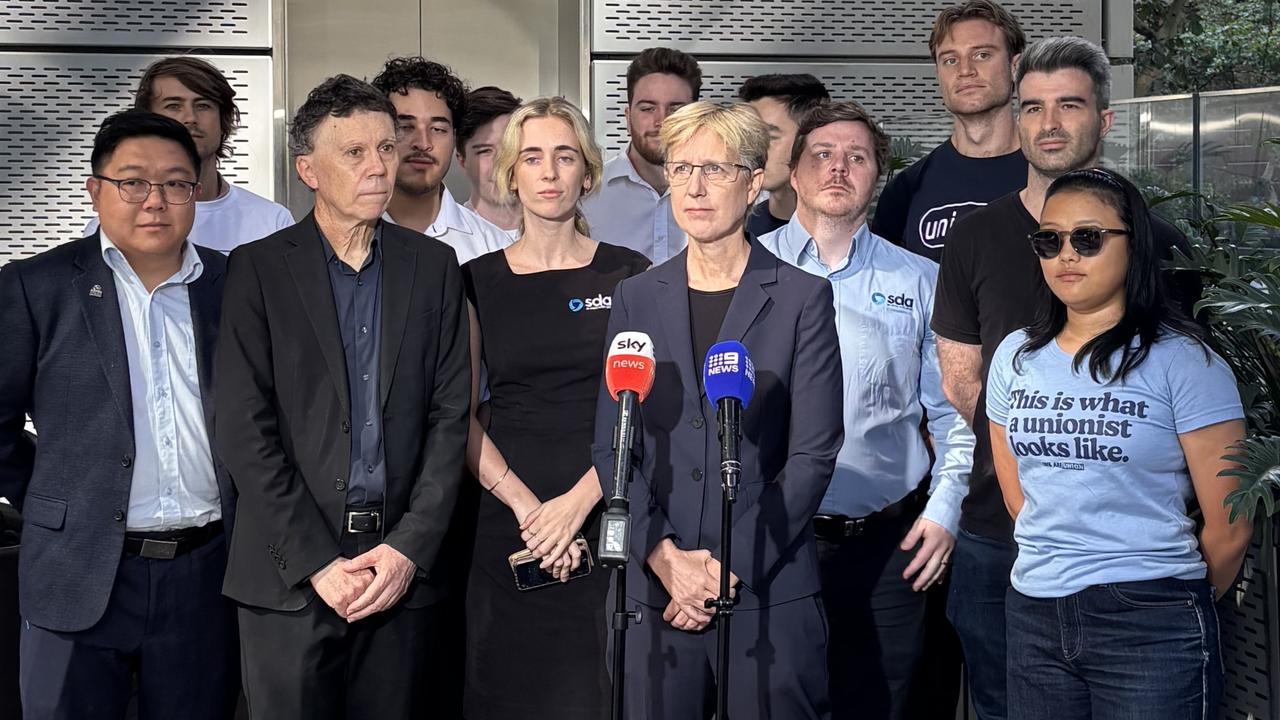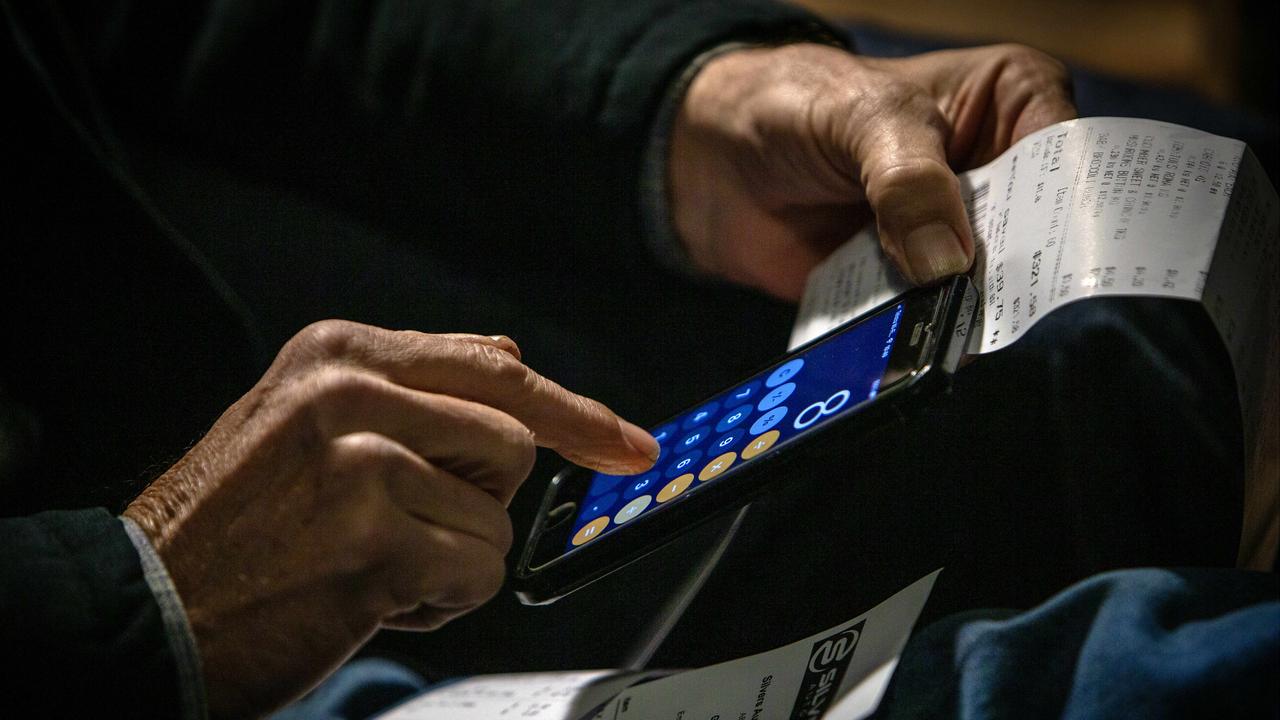What young people are doing to survive on Youth Allowance and Newstart
Young people are dropping out of their studies as they struggle to survive on just $15 a day, a new survey reveals.

In her first year of uni, Teare started feeling pressure like she had never experienced before.
In many ways she was lucky. The 19-year-old was living with her parents and never had to worry about what to eat for dinner.
But her Youth Allowance payments were so low she only had about $30 a week to spend on food. To get through her long days at Queensland University of Technology, she would often buy a huge bag of salt and vinegar chips and graze on that all day.
“I would just eat packets of chips to fill up, I usually went for whatever was on special,” she said. “That’s all I used to eat at uni.”
“At the cafeteria they had things like nachos for about $10-$15 but it would only fill you up for about two hours. You’d want it but it was so expensive.”
The Brisbane resident, who was studying a Bachelor of Business with a major in accounting, felt so stressed about her financial situation she dropped out of university in August.
A survey released today shows Teare is not alone.
She was one of 892 young people living on Youth Allowance and Newstart who answered questions about their financial situation, with disturbing results.
The survey of people aged between 16 and 30 years old, showed 62 per cent lived on less than $100 a week — or $15 a day — after paying their rent.

More than 75 per cent were receiving Youth Allowance but this was not enough to cover their basic expenses. About 51 per cent said they had couch-surfed or used other unstable forms of accommodation. About 90 per cent skipped at least one meal a week and 35 per cent had dropped their studies due to lack of funds.
The Australian Council of Social Service (ACOSS), the National Union of Students (NUS) and Young Campaigns conducted the survey and are pushing for Newstart, Youth Allowance and other related payments to be raised by a minimum of $75 per week.
Teare said an extra $75 could have meant the difference between her staying at uni or leaving.
“I was always about $30 or $50 a week short,” she said. “If I did get that little extra money, maybe I would have been more motivated to go to university.”
Teare said she used to get about $210 a fortnight from her Youth Allowance because her parents were earning too much for her to get the maximum rate.
She lived with her parents but was charged $50 a fortnight for rent and this included food for dinner.
She also had a part-time job that paid her about $50 a week so this left her with $80 a week to spend. In total she had about $130 a week, or $18.57 a day.
Most of this money was spent on her car as she needed to drive about 10-15 minutes to the train station.
RELATED: Renewed push to raise Newstart
RELATED: Barnaby Joyce and other backbenches support Newstart increase
Teare estimates about $50 a week was spent on transport, including about $10 on train tickets, $25 on petrol and the rest on insurance, registration and other bills.
With $30 going towards food, she had about $50 a week to spend on any extras such socialising with friends or textbooks.
Things she did to save money included not buying fresh produce, buying secondhand clothes, skipping social events, not taking her pets to the vet, walking long distances to avoid spending money on transport and staying at home. When she got sick she didn’t go to the doctor because she couldn’t afford it.
“It was difficult,” she said. “I felt a bit depressed because it was so much harder to maintain a job and actually go to uni.
“Sometimes I just wanted to work because I wasn’t getting much money. When I was at school it was OK because I didn’t need to spend much money but as soon as I got out, it was very stressful.”
Teare’s parents were not happy when they found out she was dropping out of uni and said they would loan her some money but the Brisbane resident said she didn’t want to take up the offer because she didn’t have any way of paying them back.

“My work offered to give me extra hours so I thought, why go to uni when I can’t afford to go to uni? If I work more hours, I’ll struggle at uni, so I would rather get the money at the end of the day and try and build my finances up.”
Teare said she definitely feels more happy now that she’s not struggling with money and earning about $900 a fortnight in an admin traineeship.
“The financial stability has made me feel so much less stressed,” she said.
“I might go back to uni next year but maybe do part-time and stay at my current job.
“I want to get experience and have financial stability so I can go to uni and not stress about whether I’m going to be able to pay my rego.”
NUS national welfare officer Adriana Malavisi said it was “simply not good enough” that young people were skipping meals and having their studies impacted due to inadequate rates of Youth Allowance and Newstart.
“The results of this survey have exposed the types of situations that it puts young people in,” she said.
Young Campaigns founder Cat Nadel said Newstart and Youth Allowance were supposed to offer a safety net that allowed people to focus on their studies or on finding paid work.
“Instead it is holding us in poverty,” she said.
“We are hearing stories of young people skipping their antidepressants and birth control because they can’t afford it on Youth Allowance.”
On Tuesday, Reserve Bank deputy governor Guy Debelle said raising the level of Newstart was one option for the government to stimulate the economy.
Dr Debelle told a conference organised by ACOSS that unemployment benefits had been constant in real terms for 25 years.
A Senate inquiry is looking into the adequacy of the $40-a-day Newstart and other related payments but the Morrison government has so far resisted calls to raise the unemployment benefit.
Social Services Minister Anne Ruston told the ACOSS conference the government wanted to improve the lives of all Australians and was spending $180 billion a year on the welfare system and using innovative, targeted programs to help people get back into work.
But ACOSS chief executive Cassandra Goldie said it was extraordinary that there were three million people in a wealthy country like Australia who were struggling to afford the basics in life.
“I can’t find anybody else outside of government who doesn’t think that Newstart needs to increase,” she said.
Continue the conversation @charischang2 | charis.chang@news.com.au




